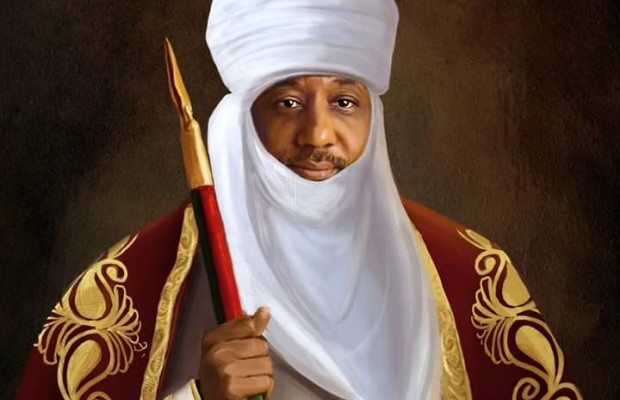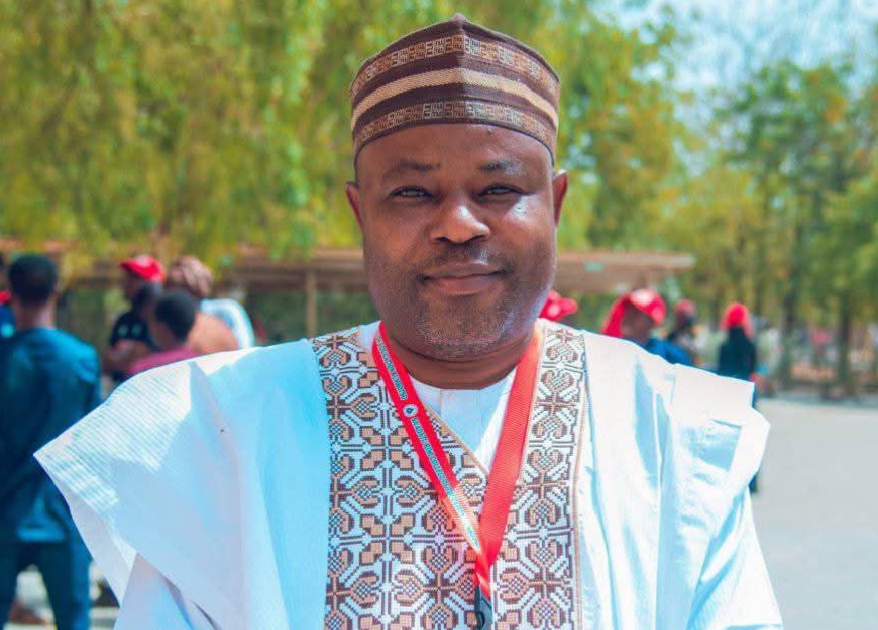Opinion
Restoring Muhammadu Sanusi ll

Restoring Muhammadu Sanusi ll
Dr. Aliyu U. Tilde
History repeats itself, they say. In the history of rulers of Northern Nigeria, however, that recurrence was less often. While historians can remember two, we may be at a point of witnessing the third.

Sometime in December 1652, Muhammadu Kakuna, the 33rd Sultan of Kano was ousted under the influence of the powerful Maidaki Auwa, who installed her son, Soyaki. Kakuna retreated to Zaria and within days fought back his way to the throne just before the year ran out. That was the only time a ruler of Kano was restored.
In 1901, the British occupied Kontagora—tudu makwantar rikici—and deposed its 3rd Emir, Ibrahim Nagwamatse, for his notorious slave expeditions. They installed his son. For some reasons, after just two years, the British returned Ibrahim from exile in 1903 and made him the Sarkin Sudan and he reigned until his death in 1929.
Muhammadu Sanusi II, the 14th Emir of Kano, may soon be the third. Like in the case of Kakuna, many saw his removal by Governor Ganduje on ground of insubordination as a live specimen of highhandedness, intolerance, and vengeance. The Emir was arrested and banished to Loko for confinement, an action which he successfully fought against before a federal high court in Abuja. The court on 30th November 2020 declared both the confinement and the Emirate Council Law under which it was undertaken as unconstitutional and restored the fundamental rights of the deposed Emir to human dignity and personal liberty.
In contrast to Maidaki Auwa of 1652, Governor Ganduje went beyond the Emir and balkanized the Emirate. He divided it into five independent emirates in order to prevent the emergence of any strong Emir of Kano in the future. This act of downgrading the system, the first of its kind since Bagauda founded Kano 1,025 years ago, is understandably the most repugnant to the Kano ruling family and to many of its subjects. If the malware, they argue, had only changed the driver file—in this case the Emir—the system could tolerate that and continue with the same speed. But corrupting the entire system files and downgrading its performance to a status of a photocopier cannot be tolerated. A ‘system restore’ is necessary.
Restoring the Kano Emirate system to its 9 March 2020 date is now on the fingers of the new administration in the State. It will certainly be greeted with mixed feelings when it happens in the next few days especially as it will portend restoring both its unified disk configuration and the deleted driver file.
History is about to witness that restoration, if the feelers from Kano are accurate. How the ancient city would absorb the heat of the operation and bounce back as one of the most important emirates in the region is a matter of immediate concern to its citizens. As Nigerians, we can only hope that it does so without boiling.
This was first published on Dr Tilde’s Twitter handle.

Opinion
Kano: A City of Memory, Enterprise and Enduring Spirit

Abdulrazak Ibrahim
During my undergraduate years in the 90s, I spent countless hours offering private lessons to the children of the affluent in Kano, especially within the Lebanese community around Bompai.

What began as a modest hustle blossomed into a wide-reaching network of tutors that spanned the city. That was just within the realm of teaching.
But as a son of Kano, my connection to the city runs far deeper. I’ve walked its pulse-literally. I would trek from BUK to Bata, soaking in the rhythm of life on every street.
I lived once in Kabara, where I was fully immersed in the city’s rich traditions, especially during the annual Durbar festivities at my late uncle’s house-he was the then Sakin Hawa of Sarkin Kano.
I watched Kano expand before my eyes.
I spent countless evenings at Wapa Cinema and served as a census enumeration officer, counting the people of Tudun Nupawa, Marmara, and Soron Dinki.
I travelled across the state-from Albasu to Zakirai-witnessing its cultural and economic breadth.
I’ve seen immigrants from across the Sahel flock to this city, drawn by its promise of life and trade.
My own town of birth, Kura-a local government in the state-is now home to some of the largest rice production and processing clusters in Africa, a true testament to Kano’s agricultural prowess and enduring relevance in food systems development.
I frequented Kofar Ruwa market, where my father’s spare parts shops were located, and where I regularly interacted with Igbo traders from across Nigeria.
I was creditworthy to the newspaper vendor at Bata and the Tuwo seller near a filling station in Kabuga.
Life in Kano was textured and vibrant
As university students, we attended musical concerts at Alliance Française and danced the night away at Disco J.
As secondary school students, we debated fiercely and won inter-secondary school quizzes and competitions, sharpening minds and building futures.
Almost every doctor, engineer, pharmacist, or scientist from Kano passed through one of our renowned science secondary schools-many of them going on to set records on both national and global stages.
Kano is not just a city-it is a living legacy. It pulses with innovation and enterprise. From agriculture to industrial production, logistics to sustainable manufacturing, food and nutrition to textiles and services, Kano is a mosaic of possibilities.
Here, livelihoods are not stumbled upon-they are forged with creativity and intent.
In this city, it’s nearly impossible not to find a means of sustenance. Kano is, indeed, abundance in motion.
Our story is not a modern miracle. Our industries and institutions are rooted in antiquity, stretching back thousands of years.
Perhaps that is why Kano is so often misunderstood-and even envied, as seen in the recent uproar sparked by a misguided, lowbrow TikToker with neither education nor depth.
From distant corners, individuals from places ravaged by material lack and intellectual barrenness often log on to the internet to hurl slurs at a people and culture they neither understand nor care to.
But we know who we are.
And we will protect that identity.
We will labour to ensure that Kano continues to flourish, to lead, and to evolve-technologically and economically-without losing its philosophical soul or cultural roots.
As Professor Uba Abdallah so wisely declared: “When a man is tired of Kano, that man is tired of life.”
And Kano-our Kano-is still full of life.
Still bold, still brilliant, still ours.

Opinion
Support for President Tinubu’s Policies and Call for the Appointment of Hisham Habib as Political Adviser

By Auwal Dankano
We, a coalition of concerned citizens and political stakeholders, express our unwavering support for the bold and decisive policies of President Bola Ahmed Tinubu aimed at revitalizing our nation and securing a prosperous future for all Nigerians.
President Tinubu’s commitment to economic reform, infrastructural development, and social welfare initiatives demonstrates a clear vision for progress. We commend his administration’s efforts to address the challenges facing our country, and we believe that with continued dedication and strategic leadership, Nigeria will overcome these obstacles and achieve its full potential.
In light of the recent resignation of Hakeem Baba-Ahmed as Political Adviser, we urge President Tinubu to consider the appointment of Hisham Habib as his successor. Hisham Habib is a seasoned political strategist with a proven track record of effective communication, policy analysis, and stakeholder engagement. His extensive experience and deep understanding of the Nigerian political landscape make him an ideal candidate to serve as a trusted advisor to the President.

Hisham Habib’s qualifications include: A degree in English and attended courses in politics and journalism in both local and overseas. He works with media houses up to the level of managing editor, and he was the first set of publishers of online newspapers in Nigeria.
He also served a the Director media of NNPP presidential and govarnatorial election, as well as appointed as Managing Director of Kano State own Radio station.
Many remember him as the pioneer chairman of NNPP, Kano state chapter , whose political expertise help the party win the number one seat in Kano.
As he decamped to the ruling APC, he build a strong chain , that will make our great party victorious at the fourth coming elections.
We believe that Hisham Habib’s appointment would strengthen the President’s advisory team and enhance the effective implementation of his administration’s agenda. His expertise in political strategy and his commitment to national development align perfectly with President Tinubu’s vision for Nigeria.
We call upon President Tinubu to give serious consideration to Hisham Habib’s candidacy and to appoint him as Political Adviser. We are confident that his contributions will be invaluable in advancing the President’s goals and ensuring the success of his administration.
We also want to call the attention of Mr President to consider Auwal Dankano for a national assignment. Auwal is the chairman of Rwinwin, a movement that worked tirelessly toward the success of president Tunubu in the last elections year.
Dankano is a quantity surveyor, with over two decades of field experience, and always promote APC and President Tunubu masses oriented policies.
Ha was a board member of Kano Micro finance, as well as Representative of Kano State , in Northern Governor’s Forum.
We reaffirm our unwavering support for President Tinubu and his efforts to build a stronger, more prosperous Nigeria.
Auwal Dankano
National Chairman
APC Forum of Intellectuals.

Opinion
K-SAFE mourns death of Dr. Auwalu Inusa Mohammed

Dr. Auwalu Halilu
Inna lillahi wa inna ilaihi raji’un.
It is with deep sorrow and a heavy heart that the Kano State Accountability Forum on Education (K-SAFE) receives the sad news of the passing of our dear friend, mentor, and a tireless champion of education and development, Dr. Auwalu Inusa Mohammed, former Chairman of the Education Support Group (ESG).

Dr. Auwalu was not only a pillar in the education sector but a beacon of hope and resilience for all who believed in the power of knowledge and community development. His wisdom, humility, and unwavering commitment to improving educational outcomes have left an indelible mark on our state and beyond.
We extend our heartfelt condolences to his family, colleagues, and the entire development community. His legacy of service, advocacy, and dedication to humanity will continue to inspire us.
May Allah (SWT) forgive his shortcomings, grant him Jannatul Firdaus, and give his loved ones the strength to bear this great loss.
Dr. Auwalu Halilu
Co-Chair (CSOs),
Kano State Accountability Forum on Education (K-SAFE) .














